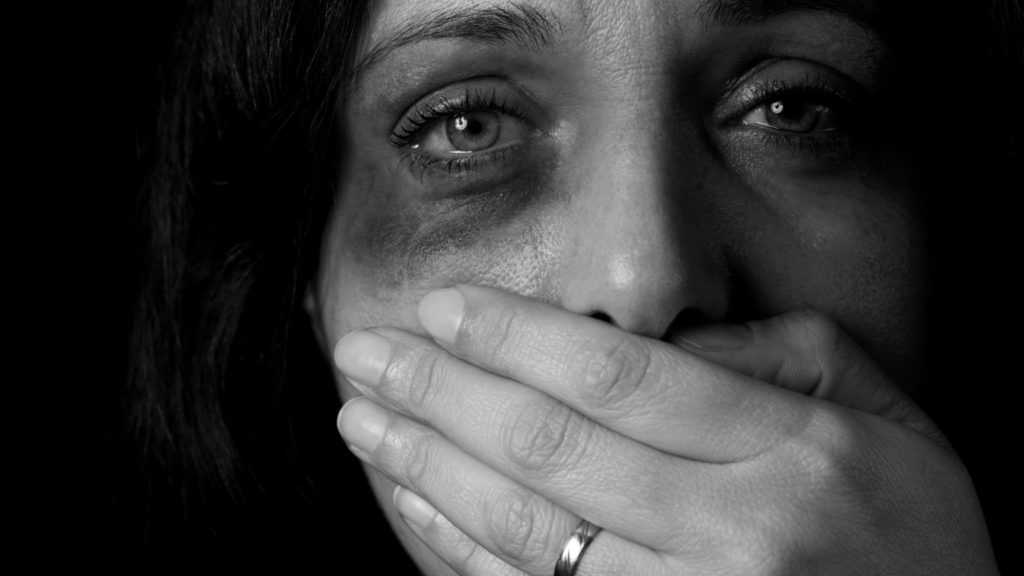If you’re a boy reading this blog, how aware are you of the women’s health issues? Even if you’re a girl, do you think you know all about women’s health issues? The pandemic of patriarchy is found everywhere in our society, so let’s talk about patriarchy and contemporary women health in Pakistan. Patriarchy has stemmed from hyper-masculinity and male dominance. One reason for female subordination is male dominance in writing history. Females have been cast into the shadows, and males have come to the front. Similarly, the health needs of females have for long been ignored due to various reasons. Before we dive deeper, you need to know what patriarchy is and why it exists.
Why does Patriarchy Exist?
Patriarchy did not just come into existence; rather, it was built. It all started when the elders wailed and cried upon the birth of a baby girl. Inherently, females are seen as inferior to males. In illiterate households, girls are given less food so their brothers can eat more; after all, they have to play the role of breadwinners in the family. Males are associated with strength and bravery, while females are associated with fragility. Women are confined within the walls of their homes to rear children. This is where the spark between patriarchy and contemporary women health ignites.
Patriarchy Stress Disorder
The intergenerational trauma of the war on women’s bodies, minds, spirits, freedoms, choices, and desires is carried in their nervous systems. Women who break through glass ceilings, gain visibility, and achieve success usually have a hard time sleeping at night. Women have to compete with men for their fundamental rights that leaves them drained and psychologically stressed. This stress induces mental health issues in women, proving the relationship between patriarchy and contemporary women’s health deteriorating.
Patriarchy and Gender Inequality
Women’s feminine attributes are undervalued, whereas men’s masculine attributes are privileged. In both the public and private spheres, patriarchal relations ensure men are in charge. Patriarchal relations exclude women from full participation in political and economic life. For example, in many Pakistani households, the eldest male is the head of the family, followed by the first-born son. This leaves behind the mother, who her eldest son then leads.
What is Contemporary Health?
Contemporary health means the ongoing health issues in society. It includes health issues like cancer, depression, obesity, cardiovascular diseases, etc. Contemporary health issues can pose an economic burden on our society. Patriarchy and contemporary women health in Pakistan is an emerging problem. Ignorance of women’s health issues leads to poor female health.
Patriarchy and Contemporary Women Health
Male domination in the form of instrumentalization is very common. Instrumentalization means to use the female bodies for subordination and defining gender roles. Women are perceived as baby-making machines. Why do the illiterate in the slums have numerous children? This is because their women are given the role of reproducing throughout their lives. Following are some issues regarding patriarchy and contemporary women health.
Increased Child Births
As mentioned before, women are given the role of bearing children. “The more, the merrier” is what the men tell their wives. Even mothers tell their daughters that having children will ‘keep’ their husbands in their homes and love them. Although children do bring joy and happiness in homes, excess of everything is harmful. Too many children leave the mothers’ bodies strained and tired. They find it challenging to do the household chores because they are often tired of taking care of their newborns. Breastfeeding is also taxing for them.
Women tend to ignore their health to provide for their children. In addition, husbands are no help during this difficult time. The duties must be divided during this time, but they are not. It is vital for husbands to get appropriate guidance about the various hormonal changes the pregnant wife has to go through and what he can do to help. To get authentic guidance, consult a gynecologist.


Unsatisfactory Sex Life
Sex is always associated with male pleasure. Most women don’t even know their own sexual needs. They believe that sex has to be pleasurable only for their partners. This is not true. Sex is a two-way street. Females require physical intimacy as much as males. It is supposed to be enjoyable for both. If a female’s sexual needs are not fulfilled, she is bound to become cranky and irritable. There are many health benefits of sex. The hormone released during sex, oxytocin, plays a fantastic role in lifting mood. Usually, males do not even consider female pleasure and just get over with it. This practice leaves a female unsatisfied such that she starts to despise the act altogether.
The psychological effects of sexual dissatisfaction can cause anxiety, low self-esteem, body-image issues, and feelings of worthlessness. The high number of males suffering from premature erections or erectile dysfunction in our country is impacting the sexual pleasure of many females. Some men refuse to acknowledge these problems because of the stigma associated with them. This attitude only makes the situation worse. Additionally, many women avoid men who are unclean and who drink alcohol or smoke tobacco. Men need to take care of these minor yet essential issues.
In a male-dominated country like ours, where specific segments of society are still uncomfortable discussing sex, it has never been easy for women to voice their expectations. The lack of conversation about sex doesn’t mean the need doesn’t exist. It is still common for couples not to speak openly about their pleasures, fantasies, boundaries, or sexual health. Reclaiming one’s sexuality does not violate any social norms. The only way for women to be satisfied is to become more aware of their sexual needs.
Psychological Issues
The World Health Organization’s 1993 report on psychosocial factors and women’s mental health discussed the link between the increased prevalence of mental health issues in women and their vulnerable location in patriarchal societies. As the childhood years, from birth to teenage, are defined and limited by social expectations, the demands for the emotional availability of females begin to emerge during adolescence. Girls who already have a mental illness are more likely to be negatively affected by them. There are numerous harmful health effects of female mental health problems that make it difficult for them to cope on their own.
Post-partum depression is not addressed in our societies. Many females get depressed right after childbirth and feel worthless and incapable of caring for their young. In addition, depression is one of the most common disorders, and it is strongly linked to gender roles and expectations. For men, marriage is seen as a preventive measure against depression, whereas it is the opposite for women. There are times when we never find out if the woman was already under stress or if she has a history of illness because the family keeps it hidden until she marries. When the truth is revealed, both families engage in a blame game. She is labeled as ‘mad,’ ‘crazy,’ or even ‘an unfit partner’ because of her mental disorder. It is vital to get medical assistance from a certified psychiatrist to deal with such issues. You can consult a psychiatrist to get authentic assistance.


Domestic Violence
Domestic violence has deep historical roots, and patriarchy, which justifies male dominance over women, has long been prevalent. Throughout history, women have been treated as subordinate to men and have been vulnerable to male violence in most male-dominated societies. Clinical depression, PTSD, anxiety disorders, and psychosis are among the mental disorders associated with domestic violence and intimate partner violence.
A pre-existing illness is frequently used as an excuse for a woman to become a victim of domestic violence, whether from her partner or family members. The socialization of males and females into gender roles and cultural norms regarding the woman’s position in marriage and duties to her husband make it difficult for women to challenge these gender and status hierarchies openly.


Nutrient Deficiencies
Nutrient deficiencies in women are prevalent due to poor health conditions during pregnancy and labor. Firstly, many husbands play a minor role while their wives are pregnant. They have to do all the household chores and also care for the husbands and existing children. This adds to the physical burden. After doing all the work and becoming drained, they have no energy left to care for themselves. According to a study, the developing fetus does not consider the maternal deficiencies and extracts all the possible nutrients from the mother’s body. For example, the mother’s calcium stores are drained out to meet the calcium requirement of the fetus.
The Takeaway
The relationship between patriarchy and contemporary women health is quite deep-rooted and branches into many aspects. It is a ripple effect where one issue leads to another which in turn leads to another one. It is vital to identify all the patriarchal issues and create awareness about contemporary women health issues so that everyone can know the seriousness of the situation.
Females are also humans and must be treated a such. It must be kept in mind that females and males are different in many ways and have separate needs that must be addressed. Assuming that women health issues are not very prevalent or turning a blind eye won’t do any good. Appropriate actions are required to address the side effects of patriarchy and contemporary women health in Pakistan. If you or any female close to you has a health issue, do not ignore it.
FAQs
1. What are women’s health issues in Pakistan?
In Pakistan, contemporary women’s health issues include unwanted pregnancies, sexually transmitted diseases, unsafe abortions, osteoporosis due to menopause, etc.
2. Why is women’s health important in Pakistan?
As women are the foundation of a family’s overall health, ensuring their access to quality care will improve children and families.
3. How does patriarchy affect society?
Patriarchy impacts many aspects of society, including culture, family, school, the workplace, and relationships. Its presence can lead to inequity and violence against women.
4. How do gender issues affect women’s health?
Women and other marginalized genders face severe and long-term consequences as a result of gender inequity. Anxiety, depression, low self-esteem, and PTSD can result from exposure to violence, objectification, discrimination, and socioeconomic inequality.
5. How to deal with mental health issues?
It is vital to deal with mental health issues by talking to a certified health professional. Reach out to a psychologist to get help.
6. Is low self-esteem a mental health issue?
Low self-esteem is not a mental health problem in itself, but it is closely related to it. If a variety of factors have a long-term negative impact on your self-esteem, it may result in mental health issues, for example, depression or anxiety.
7. How to solve public health issues?
Public health issues are not easy to solve. They require a lot of strategic planning. First, you have to determine the problem, its severity, and prevalence and devise a proper plan.
8. How do mental health issues affect families?
Mental illness frequently has a ‘ripple effect’ on families, causing tension, uncertainty, stress, and, in extreme cases, significant changes in how people live their lives. Different family members will most likely be affected differently. It is normal to experience various emotions, including guilt, fear, anger, and sadness.
9. Why is patriarchy a problem?
According to some feminist theorists, patriarchy is an unjust social system that harms both men and women. It frequently refers to any social, political, or economic mechanism that promotes male dominance over women.
10. What are contemporary mental health issues?
Social and economic disadvantage and deprivation, low levels of education, unemployment or insecure employment, discrimination, and violence are examples of these. Alcohol and substance abuse, abuse, and gender-based violence all impact mental health.
Book an appointment now to answer all your queries. You can book an appointment through Marham by calling Marham helpline: 0311-1222398 or by an online appointment booking facility through the website or Marham mobile app. Go for diagnostic tests through Marham’s lab test booking online.
Can’t Find The App?
Android Users:
https://play.google.com/store/apps/details?id=controllers.marham.marhammed&hl=en
Drop a review for us at Playstore if you’ve had a good experience!
iPhone Users:
https://apps.apple.com/pk/app/marham-find-a-doctor/id1095243102
Stay Home. Stay Safe!

